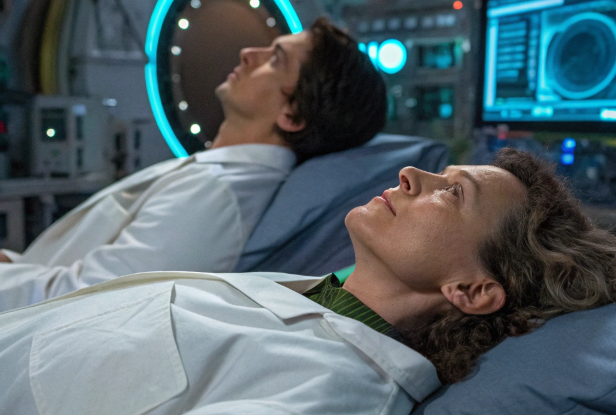Understanding Déjà Vu: That Eerie Feeling of Familiarity

© Melike B / Pexels
We’ve all experienced it, that strange sensation where you’re in a completely new situation but feel like you’ve been there before. This phenomenon, known as déjà vu, has puzzled scientists, psychologists, and everyday people alike for centuries.
It’s a fleeting moment of familiarity that seems to come out of nowhere and disappear just as quickly. But why does it happen? What does it mean? And is there a scientific explanation behind it?
What Exactly Is Déjà Vu?
Déjà vu is a French term that translates to “already seen.” It describes the eerie sensation that a current experience feels oddly familiar, even though you know it’s happening for the first time. You might be having a conversation, visiting a new city, or walking into a new store, and suddenly, you get the overwhelming feeling that you’ve lived through that exact moment before.

However, despite feeling so real, it is not a sign of actual memory recall. In most cases, people who experience it cannot pinpoint when or where they might have encountered the same scenario before. This is what makes it so mysterious, your brain is telling you that this moment has happened before, but you know for a fact that it hasn’t.
Why Do We Experience Déjà Vu?
While the exact cause of déjà vu remains unknown, scientists have developed several compelling theories that attempt to explain why it happens. Let’s take a closer look at some of the most popular explanations.
1. Memory Glitch
One of the most widely accepted theories suggests that it occurs due to a minor mix-up in the brain’s memory system. Our brains process information rapidly, and sometimes, a new experience might accidentally be stored in long-term memory instead of short-term memory. This could create the illusion that we are recalling something from the past when, in reality, we are experiencing it for the first time.
2. Brain Processing Delays
Another theory suggests that it happens when our brains process incoming information out of sync. Our brains receive sensory input from our eyes, ears, and other senses simultaneously. If one pathway processes the information slightly faster than another, it could create a brief moment where the brain perceives the delayed information as a past memory instead of a present experience.
3. Attention and Perception
Sometimes, we may momentarily lose focus while processing a new environment or conversation. If our attention shifts away for a fraction of a second and then returns, our brains might mistakenly register the moment as a memory rather than something happening in real-time. This could explain why déjà vu often feels like a fleeting sensation that comes and goes quickly.

4. Neurological Causes
Some researchers believe that it may be linked to electrical activity in the brain, similar to the minor disruptions seen in epilepsy. In fact, people with temporal lobe epilepsy often report experiencing it as a symptom before having a seizure. This suggests that small, harmless electrical misfires in the brain might be responsible for déjà vu in healthy individuals as well.
Who Experiences Déjà Vu Most Often?
Déjà vu is surprisingly common, with studies suggesting that around 60-70% of people experience it at least once in their lifetime. However, some people experience it more frequently than others.
Here are a few factors that may influence how often you experience déjà vu:
- Age: Déjà vu is reported most often in younger individuals, particularly those between the ages of 15 and 25. It tends to decrease with age, possibly because the brain becomes more efficient at processing new information.
- Travel and Exposure to New Environments: People who travel frequently or experience new places tend to report more instances of déjà vu. This could be because their brains are constantly processing unfamiliar environments, increasing the likelihood of memory mix-ups.
- Dreamers and Highly Imaginative Individuals: People who remember their dreams vividly or have strong imaginations may be more prone to déjà vu. Some researchers suggest that it might be linked to dreams that we don’t consciously remember but still influence our perception.
- Stress and Fatigue: Being overly tired or stressed may increase the likelihood of experiencing déjà vu. Since stress can impact memory and cognitive function, it may make the brain more susceptible to processing errors.
Is Déjà Vu Something to Worry About?
For most people, déjà vu is a harmless and intriguing experience. However, in rare cases, frequent or intense episodes of déjà vu can be a symptom of an underlying neurological condition, such as epilepsy.
You should consider speaking to a doctor if:
- You experience it very frequently (multiple times a week or daily).
- It is accompanied by other unusual symptoms, such as confusion, blackouts, or muscle twitches.
- You have a history of seizures or neurological issues.
For the vast majority of people, though, déjà vu is simply a curious quirk of the human brain with no cause for concern.
The Fascination with Déjà Vu in Pop Culture
Because déjà vu feels so surreal, it has often been linked to paranormal or supernatural experiences in movies, books, and pop culture. Some people believe it has connections to past lives or parallel universes. While there is no scientific evidence to support these ideas, they certainly add to the mystery and intrigue surrounding déjà vu.

Movies like The Matrix even use déjà vu as a plot device, suggesting that it occurs when the simulated world is being altered. While this is purely fictional, it does highlight how deeply déjà vu has fascinated people for generations.
Déjà vu is a strange but common experience that reminds us just how complex our brains are. While science has yet to fully explain why it happens, the most likely explanations involve memory processing errors, brain delays, and perception glitches.
You might also want to read: Click if You Dare! These Are the Most Haunted Places in the US


